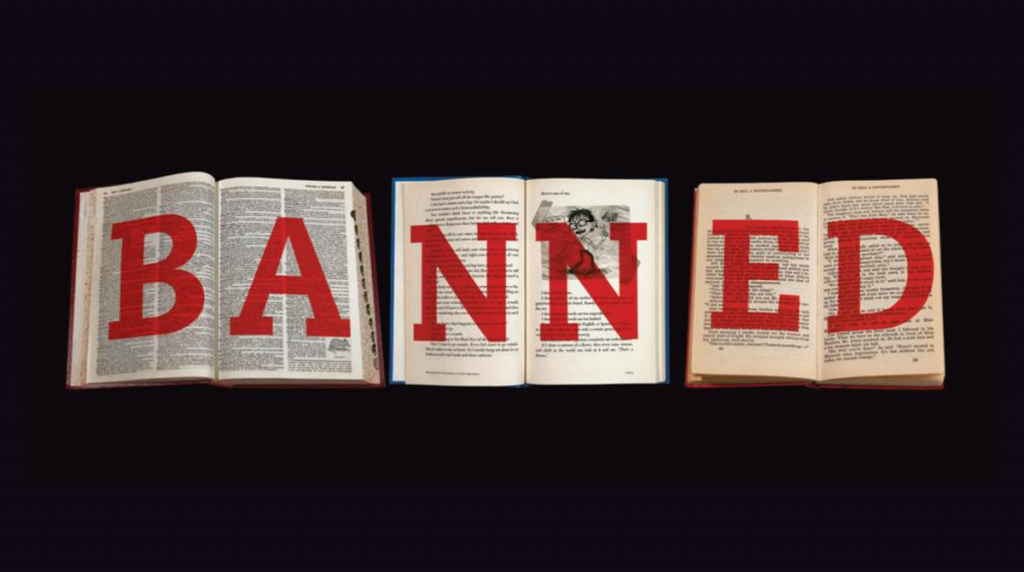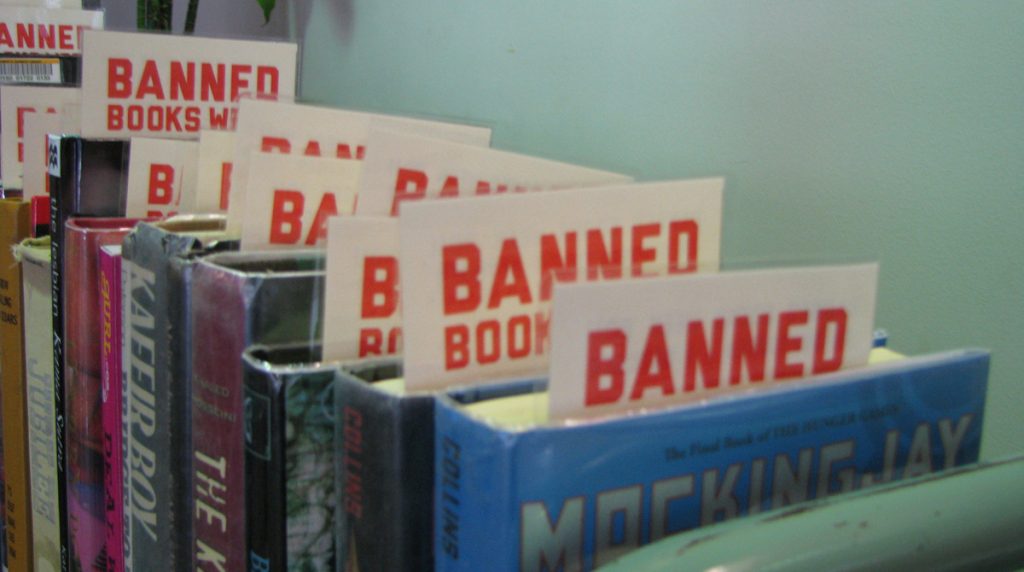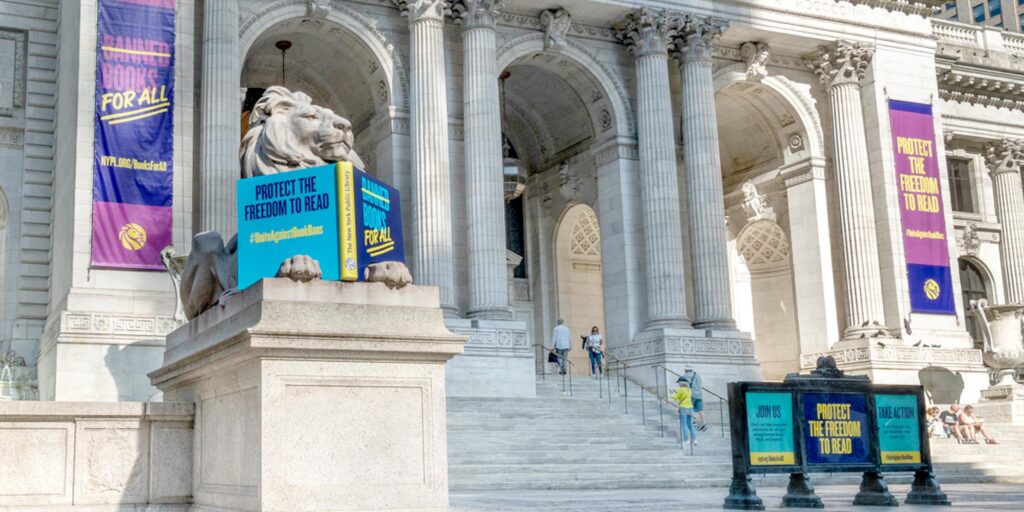Book challenges and book banning are increasing in libraries and schools throughout the United States. To help spread the word about these activities and efforts to combat them by librarians, parents, students, politicians, and concerned citizens, I Love Libraries will highlight several stories each week on the current crisis. This roundup includes news from Idaho and North Dakota, a staunch defense of Dolly Parton's book program, and more. Please share widely.
Don’t mess with Dolly
Fans of Dolly Parton are letting their displeasure known to Kentucky State Senator Stephen Meredith about his questioning of the country star's children's book program, writes Newsweek. Meredith, a Republican, asked during a Wednesday legislative committee meeting to discuss a state partnership with Parton's Imagination Library program if language could be added to the partnership bill to ensure the program's books are "subject-appropriate." A Twitter backlash followed, with one commenter writing that Meredith not "dare mess with the great Dolly Parton. She's a wonderful human who truly cares about people and making the world a better place!"
Trustees say “no” in Idaho
Coeur d’Alene (Idaho) Public Library trustees recently denied a request to remove or at least separate two books (Prince & Knight by Daniel Haack and The Hips on the Drag Queen Go Swish, Swish, Swish, by Lil Miss Hot Mess) from the children’s library, reports Coeur d’Alene/Post Falls Press. A Coeur d’Alene resident filed the challenge of the two books, asking that the materials be made available by parent request only, rather than on the shelves of the children’s library. The request was rejected by the library’s Material Review Committee.
Trustee Steve McCrea explained the board’s decision: “Our function is to provide everybody with access to these books,” he said Thursday. "And it's the parents' responsibility to limit their children, not our responsibility…. There are parents that like these books in the library, believe it or not. They want these books in the library; they want access to them for their children.”
Book bans at critical mass
“The wave of book bannings around the country has reached a level not seen for decades,” writes Heather Hollingsworth and Hillel Italie for the Associated Press. The efforts have ranged from local communities such as Orange County, California, and McMinn County (Tenn.) School Board's pulling Art Spiegelman's award-winning graphic novel, Maus, to statewide censorship initiatives. According to PEN America, which has been tracking legislation around the country, dozens of bills have been proposed that restrict classroom reading and discussion. Most all of the laws focus on sexuality, gender identity, or race.
Teaching banned books
Heather Woods, English teacher in Wahpeton, North Dakota, is among a group of educators across the state who have implemented banned books units, writes Wahpeton Daily News. For the past seven or eight years, Woods has instructed her junior class to choose a banned or challenged book from the school’s library, read it, then write a rationale in favor of keeping the book. Woods said. “I think controversial topics and critical thinking belong in the classroom,” Woods told Daily News. The topic also forces students to think about the role of government, from a local level, like a school board, to the federal level, says Wood. “They learn that it is very real, and it could happen locally. It’s something they could run into in their lives, and they should form an opinion about it,” she said.
The new culture war
“Whether you’ve been paying close attention or are just an interested observer, you have probably noticed public schools are rapidly becoming the newest front in the culture wars. While there’s not enough room to get into all the angles, political and otherwise, let’s focus on one area that deserves to be explored: book bans,” writes Doug Hensley for the Lubbock (Texas) Avalanche-Journal.
“When someone moves to restrict a book’s accessibility, it should be cause for alarm,” said Hensley. “Why? Because what happens on that day when someone else is in charge? Who has final say over which books are OK to read and which ones are not? Do we really want someone else deciding which books our kids can read (beyond those already charged with that responsibility)? Regardless of what some may think, school librarians are extremely knowledgeable and thoughtful people. They are subject-matter experts who keep an eye on these matters.”
He continued: “Books serve multiple purposes in our free and open society. They are a source of information and should be a resource for who wish to learn and want to be exposed to ideas and viewpoints, in some cases, different from their own. This is part of what an education is all about.”
Take action
Alarmed by the escalating attempts to censor books? Here are four steps you can take now to protect the freedom to read.
1. Follow news and social media in your community and state to keep apprised of organizations working to censor library or school materials.
2. Show up for library colleagues at school or library board meetings and speak as a library advocate and community stakeholder who supports a parent's right to restrict reading materials for their own child but not for all readers.
3. Help provide a safety net for library professionals as they work to navigate the intellectual freedom needs of their communities by giving to the LeRoy C. Merritt Humanitarian Fund.
4. Educate friends, neighbors, and family members about censorship and how it harms communities. Share information from Banned Books Week 2021.
ALA offers direct assistance as well as an array of resources to assist library workers and library advocates in responding to and supporting others facing such challenges. If you’re experiencing a book challenge, please report it to ALA’s Office for Intellectual Freedom and let them know if you need assistance.



